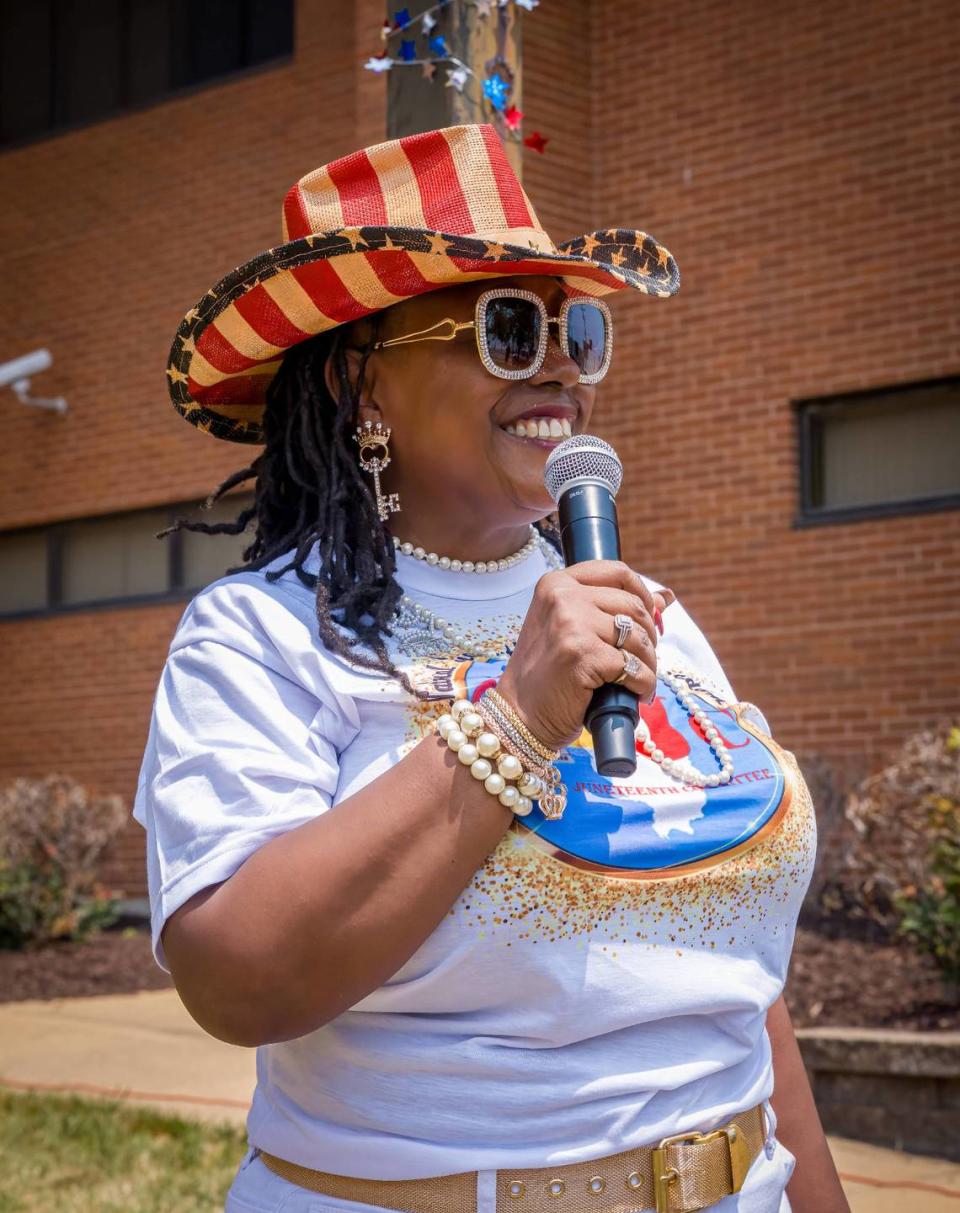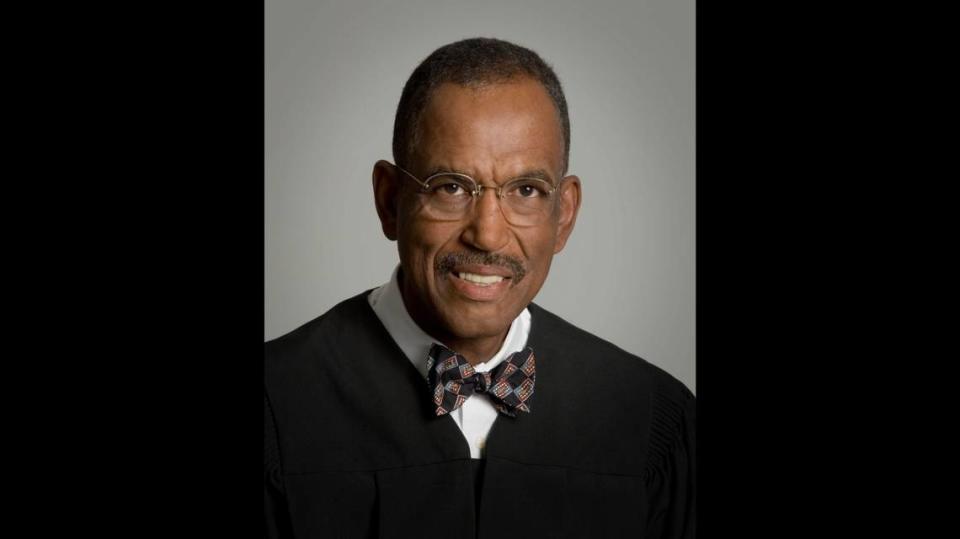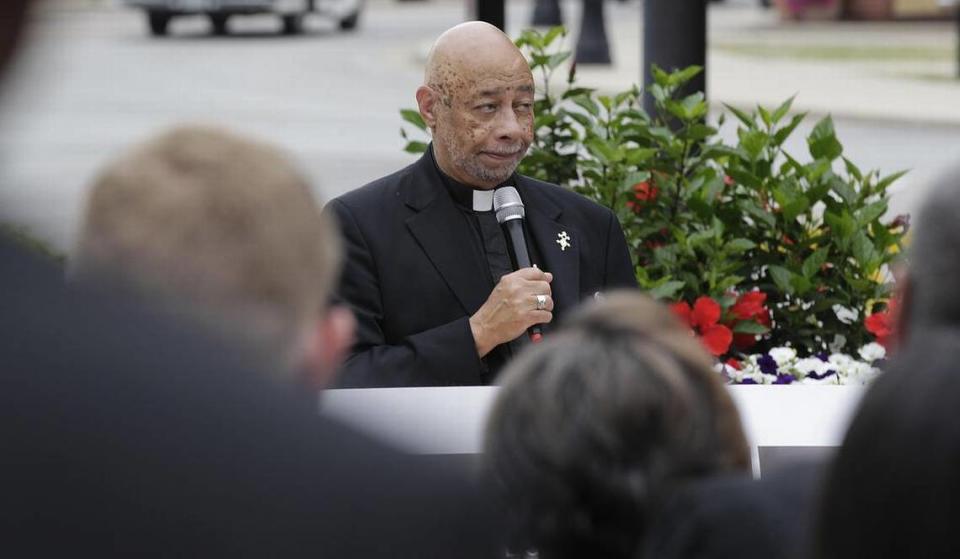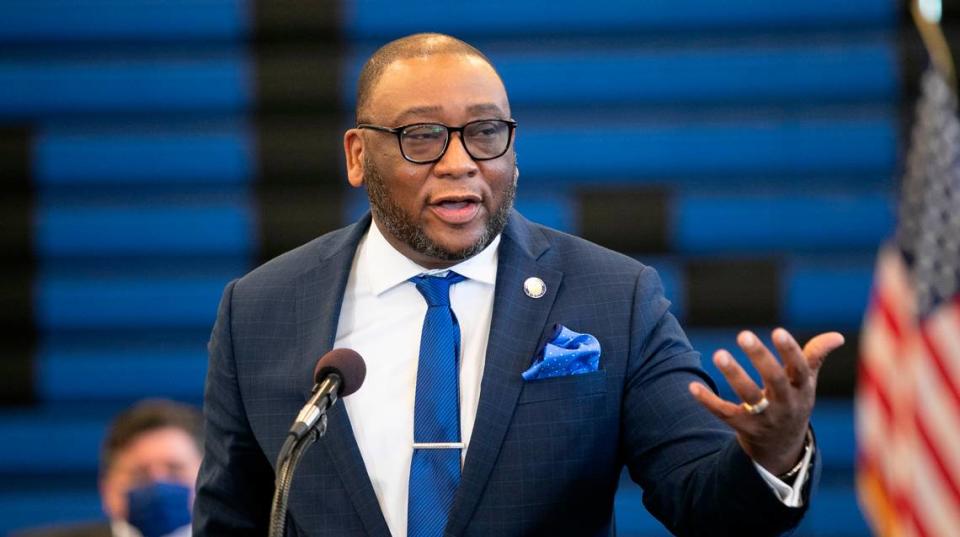Juneteenth is a holiday for people of all races, metro-east civil rights leaders say
Local civil rights leaders say it’s important for everyone to commemorate Juneteenth, fully acknowledge the history it represents and work to continue pushing for equity for Black people.
“ It’s important because we helped build the country,” said Stephanie Bush Taylor, president of the East St. Louis nonprofit, Community Development Sustainable Solutions. Taylor is also chairperson of the Illinois Juneteenth Committee.
“It is not about defecting or moving back to Africa. It’s about getting the rights that have been long overdue to us today,” she said.

Juneteenth commemorates the day - June 19, 1865 - when Union forces informed enslaved people in Galveston, Texas, about their freedom— an announcement that came two years after President Abraham Lincoln’s Emancipation Proclamation.
Events marking what is now a national holiday - since 2021 - are being held throughout the nation, including in at least four metro-east communities. Organizers all over the country want everybody to know this is a holiday for everyone. Juneteenth is a part of American history. Black history is American history, including slavery.
“It’s not a holiday just for Blacks,” said State Sen. Christopher Belt, D-Swansea. “It’s a holiday for every person who believes the peculiar institution of slavery was wrong and that the abolishment of slavery was the right thing to do, and that we are all created equal.
“If you believe those things, that’s why we celebrate it. Just like we celebrate the Fourth of July. Black people were still being enslaved July 4, 1776.”

Retired Illinois Fifth District Appellate Justice Milton Wharton said the national holiday is important.
“It is important, particularly in today’s socio-political climate, to have a national day emphatically recognizing that human slavery existed in America and that it was abolished through courageous efforts and sacrifices on the battlefield, in our presidency and legislatures, and publicly by abolitionists,” Wharton said.
“Although Juneteenth (6/19/1865) has particular significance in the state of Texas, it was the 13th Amendment, ratified 12/6/1865, that officially ended slavery in America,” he noted.

The Rev. Joseph Brown, a Catholic priest and a professor in the Department of Africana Studies at Southern Illinois University at Carbondale, said the meaning of Juneteenth has changed for him over the years.
“I wasn’t real happy that we would be celebrating a holiday that told Black people three years after they were freed, after the Civil War was over, that they were finally emancipated.” the native of East St. Louis said. “But, I have changed my mind about it because of scholarship I have read.
“Now, I understand. Those Black people, those Black soldiers, who brought that news to them. The people had already known that, but it wasn’t official until 1866,” Brown said. “Our Black communication network that went on back then already knew about it. But, they couldn’t act like they knew it or they would’ve been in trouble.”
Former State Rep. LaToya Greenwood said she believes people of all races should commemorate, and learn more about, Juneteenth and the history that goes with it.
“When you learn more, you want to do better and recognize it and celebrate it. People like to say Black history, but Black history is American history,” Greenwood said. “It’s a teachable moment and a day where we can honor our forefathers and ancestors. We have to thank them for all they went through to make it better for us.”
“ We are Americans. We come in many different skin colors, but we are Americans. We are proud to say we helped build the foundation of this country.”
This year’s commemoration is also a call to action
The Juneteenth Wave of Freedom is the theme of the observance this year, according to Taylor. It’s a call to action.
“We’re here to take responsibility in our freedom,” she said. “We’re here to hold the state and the country accountable to what true equity, diversity and inclusion look like.”
Another part of that call to action is for people to engage in the work of a newly formed state commission called the African Descent-Citizens Reparations Commission, said Taylor, who was appointed as a member by Gov. J.B. Pritzker.
The commission was formed “so we can actually uncover what wrongs were historically placed and continued to be placed on the black community. And, how can we actually repair that,” Taylor said.
It’s also important to make sure that the true history of Black people in America is taught in schools and included in textbooks, so it’s not “swept under the rug or appropriated,” Taylor said.
She noted that Pritzker signed legislation this year designed to prevent book bans in publicly funded libraries.
“Others have money, history, and property that they leave for their children,” Taylor said. “ And with our history being usurped, hidden and overlooked, we are not getting those same opportunities. We need our children to know they are equally vested in this country.
“ They need equal rights and opportunity so they know they are contributors, not just a worker or somebody’s assistant in this place called United States of America.”
People must apply consistent pressure on the government to fight systemic racism, she said.
“Systemic racism runs like a machine. From what we see on the news, from what we’ve gotten out of our history books, all of it tells us it’s not for you,” Taylor said. “... After a while you check out because you’re wondering when’s a conversation, when is love, when is equity going to be turning its face to you.
“When is Lady Liberty gonna take its blinders off and really take a look at the fact we need equity. We’re too busy trying to live and fight our way into a society that has historically marginalized us or told us we were less then.’’

The contributions of Black Americans
Belt also noted that the contributions of Black people have left an indelible mark on the history of America.
In response to a question, he said he pledges allegiance to the American flag just like everyone else.
“We have to keep hope alive that one day, it will mean one nation under God, indivisible, with liberty and justice for all,” he said. “ We are not there yet. You can see it in all of the discriminatory practices we have to deal with day in and day out. We gotta believe we are marching toward what the Pledge of Allegiance says.”

